About Us
Zimak Documentary Part I
Zimak Documentary Part II
Zimak Documentary Part III
Iran has had many watchmakers in its history, but very few has had the opportunity to be educated in Swiss academia. This story is about a passionate watchmaker who emerged from a small town in Iran to enter one of the most prestigious watchmaking institutions in Switzerland, and working at factories like Omega, etc.
Rostam Moharami had spent most of his youth in small city of Kashan, and he fell in love with watchmaking at an early age. He realized he first had to learn to speak French, and then he had to move to Switzerland to learn this trade. His mother was a native of Kashan, and his father was from City of Tabriz, serving the govenrment during the Shah. After his fater was sent to Tabriz on a long assignment, Rostam, and his mother moved to Tehran so he could continue his schooling there. “The first hing I did was to visit Swiss consulate to see if they would grant me a visa. There was a nice young lady working there, and she said she’ll help me if I would only speak French when I visited her, and I agreed. During that time, I had found work at a small watch repair shop, and was taking night classe to learn French. It was in that school, that I started meeting some very infuential people like Rouhollah Khaleghi, the most famous musician of the time, and Ali Tehrani the famous Tunbak (tabla) master. I told Mr. Khaleghi that I wasn’t interested in music but he still offered to teach me French”. With his beginner French, and little watch repair experience, Moharami began writing letters to Swiss watch companies to see if they would recruit him. One of them eventually offered him an entry position.
“The lady working at the Swiss embassy wrote a hand note which I couldn’t read so well, and asked me to go visit somebody at Swiss air, who could help me get a discounted ticket. He read the hand note, and said he had won two free tickets, and could give me one at half price. What he eventually did was he said: “Pay me back later after you finish your school, and return.” She had also told me there was a watchmaking school in city of Biel Bienne, Switzerland that I could start attending.”
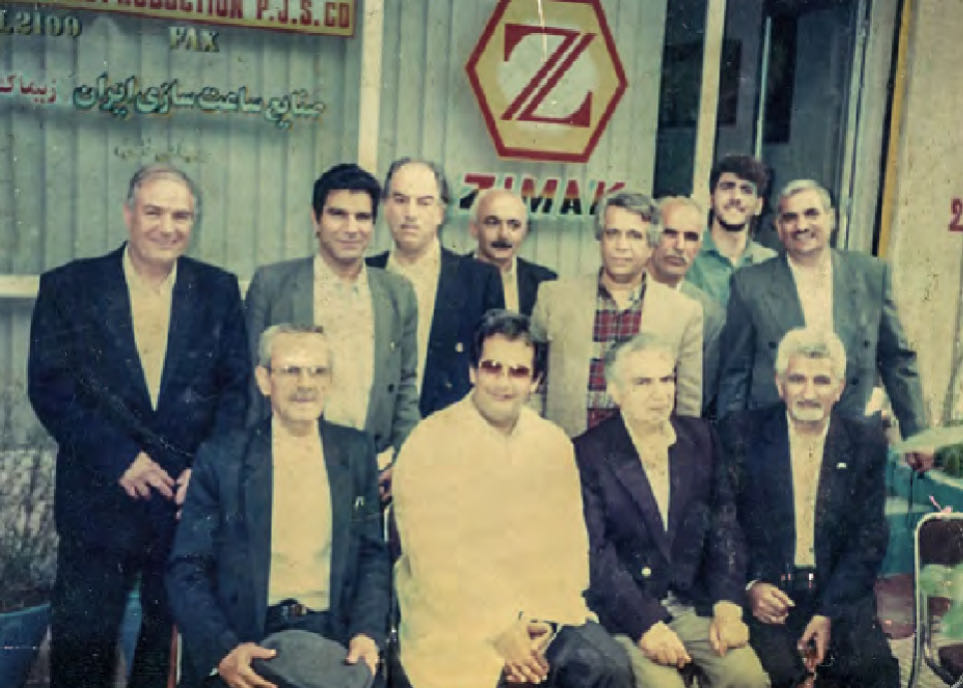
Biel Bienne was actually headquarters to Rolex, and Omega, and Moharami had no idea he would eventually work there. “So I got a free ticket from Swiss air, and the money I had saved by selling three small rugs my mother had weaved for my trip, but I still had no place to stay. The lady at the Swiss embassy suggested that I go talk to a fellow who was the hotel manager at Elite hotel in Biel Bienne. When I arrived there, the manager asked me what my plans were, and I explained I was a student, and I was there to learn French, and to learn watchmaking. He said that’s great. Then I’ll give you the room upstairs below the cellar, and we won’t charge you anything! He asked me if I had money for food, and I said yes I did. Months passed, and I was so overwhelemed with what I was learning that I felt no sense of time while attending the watchmaking school. The girls at their cafe were giving me free breakfsts. I asked them why they weren’t charging me, and they said they were just sharing their own food with me.”
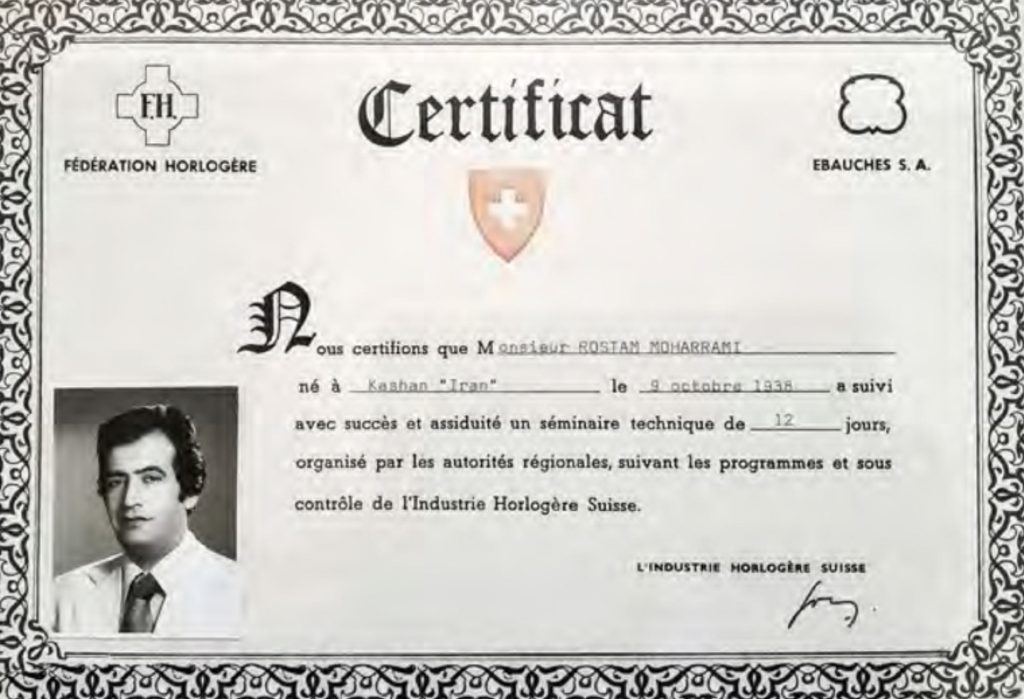
Moharmi eventually finished his schooling in 1975, and began working at several watch companies like Omega, and started saving all his money. Like everyone at that time who had left his homeland, he kept visiting back home, and wondered if he could open his own factory there. He eventually did return, selling everything he owned in Swiss Franks to raise money to purchase the machines he needed. He then loaded them on trucks to transport them to Iran.
His most influential professor was Emil Golay who taught him everything he needed to know about watchmaking. Emile Golay later came to Iran to visit his factory, and was amazed of what he had accomplished. Then he asked what do you do for fun around here other than working? Then they all went sight seeing together.
The story of an astute individual who went to Switzerland to study watchmaking, and decided to bring back watchmaking machines to produce watches in Iran is a bold move. Rostam Moharami is such a determined individual whom after going through his apprenticeship with the best watchmakers of his time, he fell in love with watchmaking, and decided to carry the torch. He sold everything he owned in Swiss Franks to raise money to purchase the machines. He then loaded them on trucks to transport them to Iran. Upon arrival on Swiss border, he was stopped there because the destination tag read “Islamic Republic of Iran”!
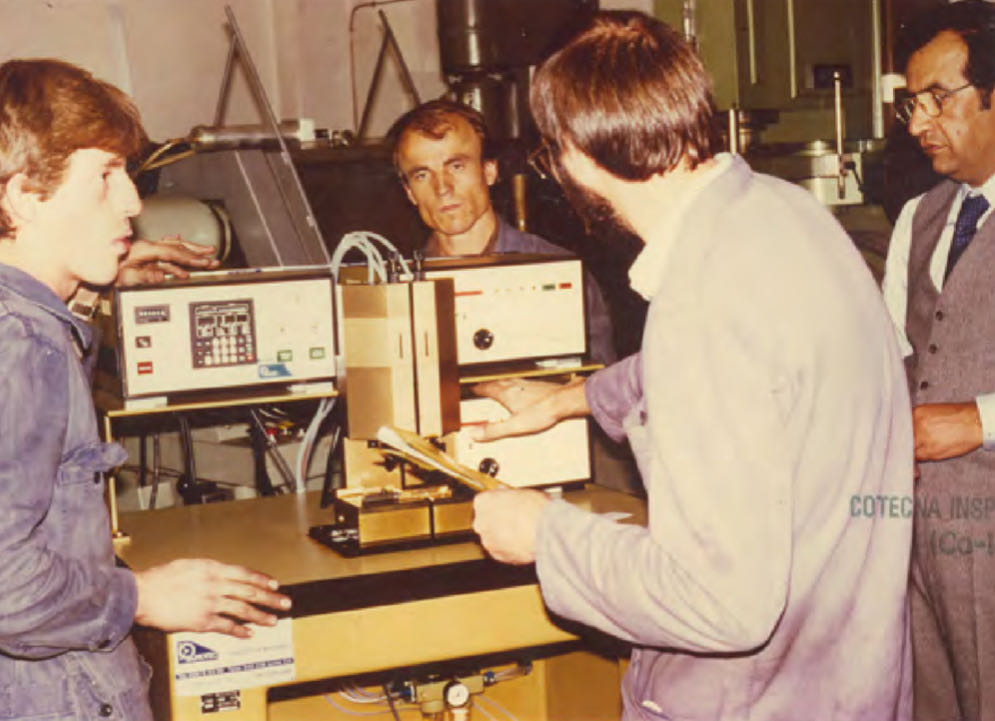
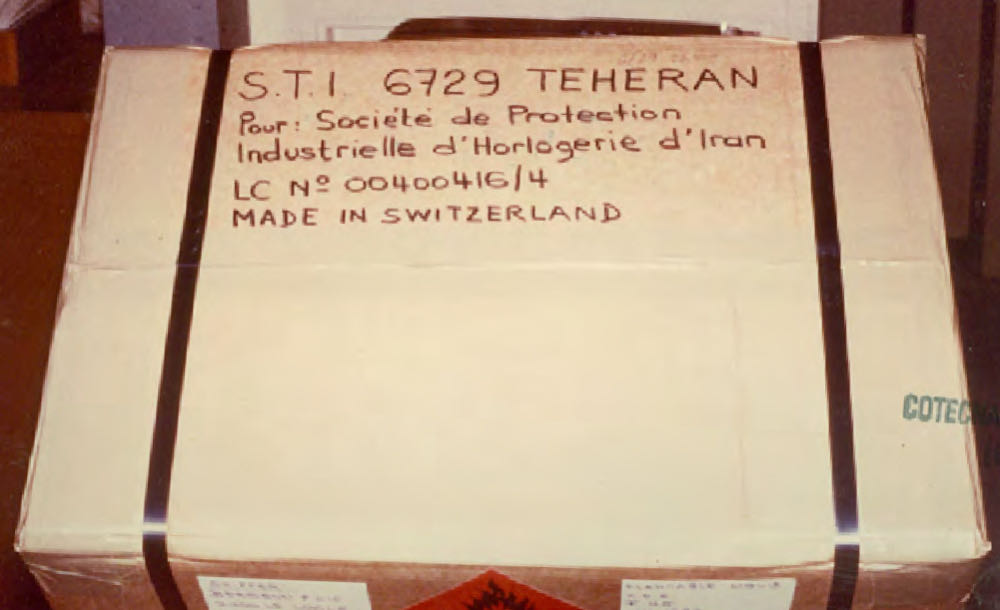
He couldn’t convince Swedish border control so he went back to his school to get a letter from his school principal that these were watchmaking machines for the sole purpose of making watches. While he reached the Iranian border, he had equal trouble getting them through until he arrived at an industrial park in the city of Gazvin west of capital city Tehran. It had taken him two and a half months to transport the machines, and took him another year to start using them.
Back 35 years ago, it was much easier to import machinery to Iran because many less sanctions were imposed (I think toothpicks are still ok!). Mr. Moharami’s trucks were stopped at the European border, but all he had to do was to go back to the head of his school, to get a letter stating those machines were for watch-making. He actually had more problems getting them inside Iran than getting them out of Switzerland. At Iranian customs, he was asked why watchmaking? Why not just buy them! He eventually managed to pay off customs, and arrived at an industrial park in the city of Ghazvin, 140 kilometers west of Tehran. It had taken him two and a half months to transport the machines, and took him another year to start using them.
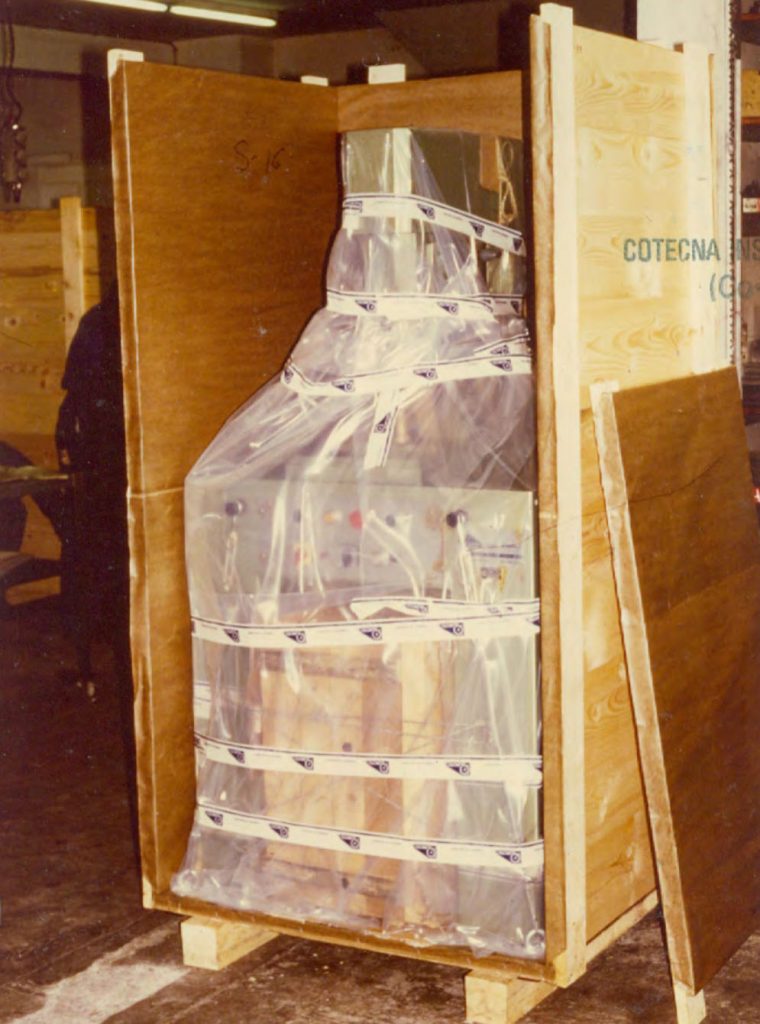
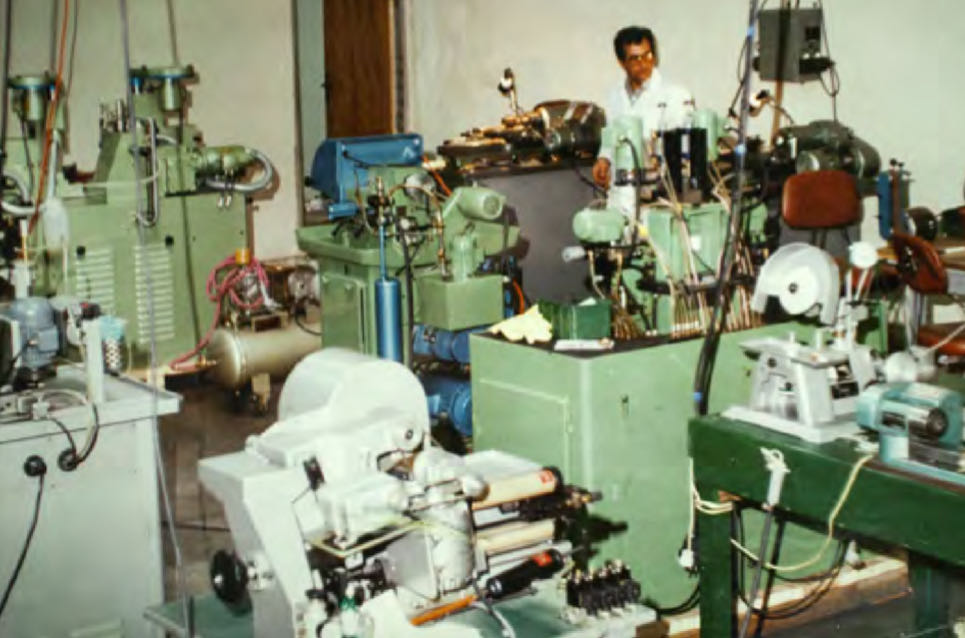
The factory was officially opened by minister of Industry Mr. Nematzadeh, who spent two hours at the factory watching the entire process of watchmaking. There were 25 female employees trained to run the 50 machines with a capacity to produce 2000 watches per day. He named his brand “Zimak”. This is the Persian abbreviation for: “Elegant Wrist ware of Ancient Persia”. Like many visionary technocrats, Zimak factory went through many obstacles to survive but the biggest shock was 2 1/2 tons of Chinese made watches that entered Iran between 2010-13. The price of a basic watch that we’ll discuss here is around $65, compared to a similar watch made in China that would only cost $25. He ended up laying off all his employees. Zimak factory is still kept open for special orders, like an order of 250 watches he received from the office of foreign minister, Javad Zarif.
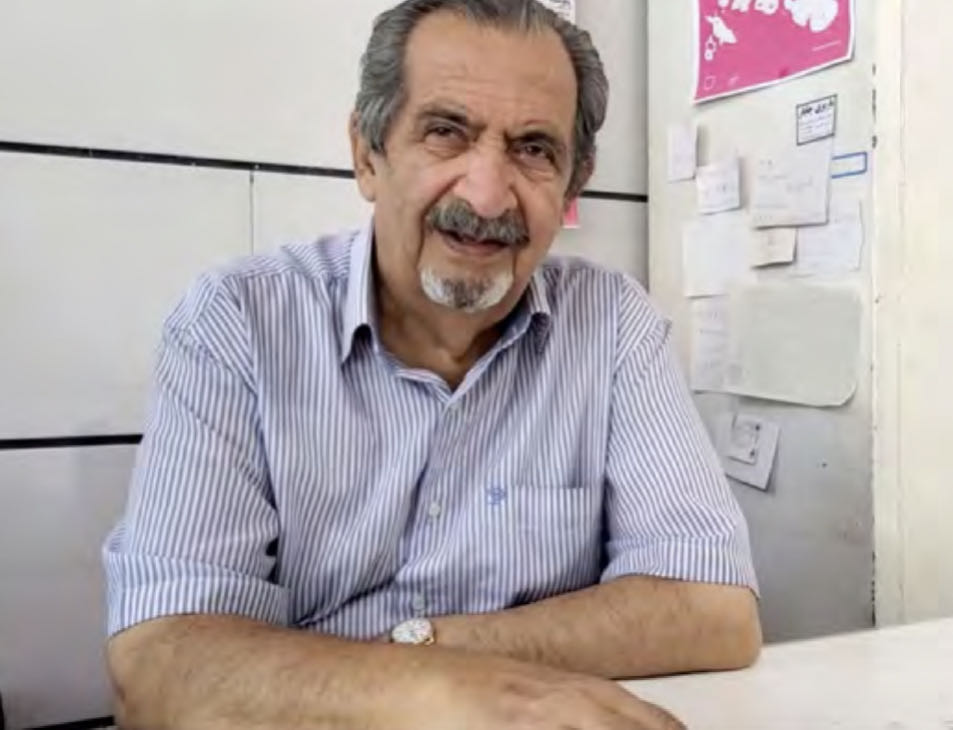
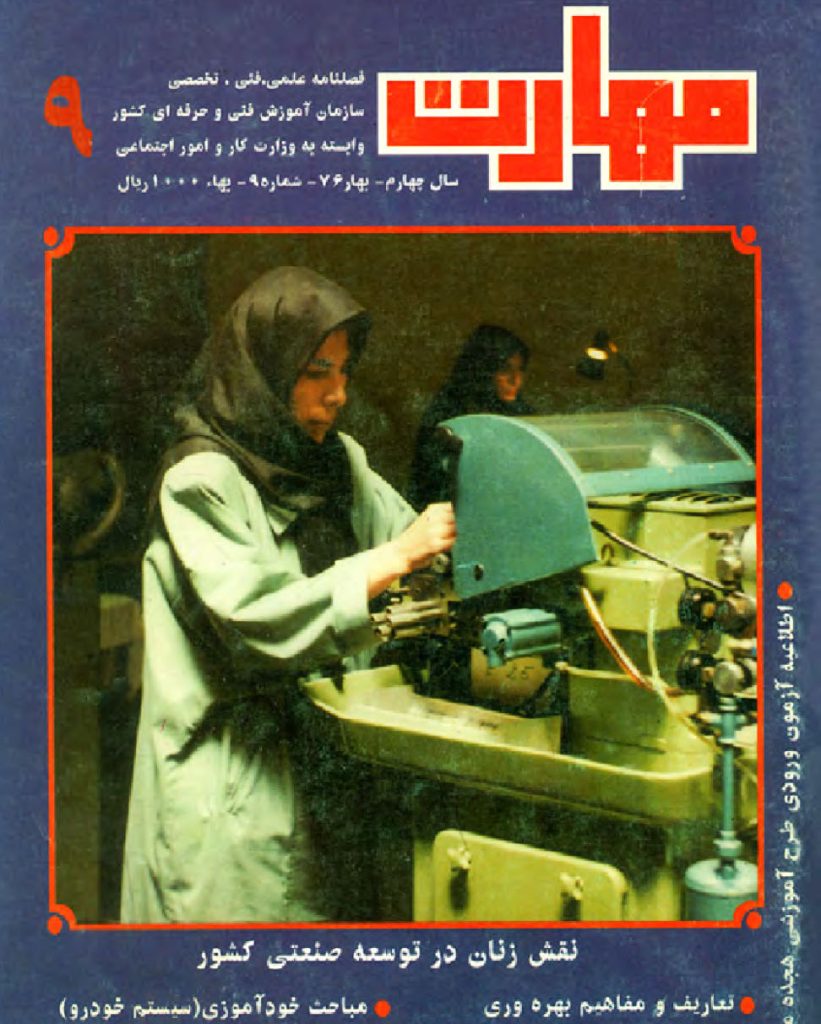
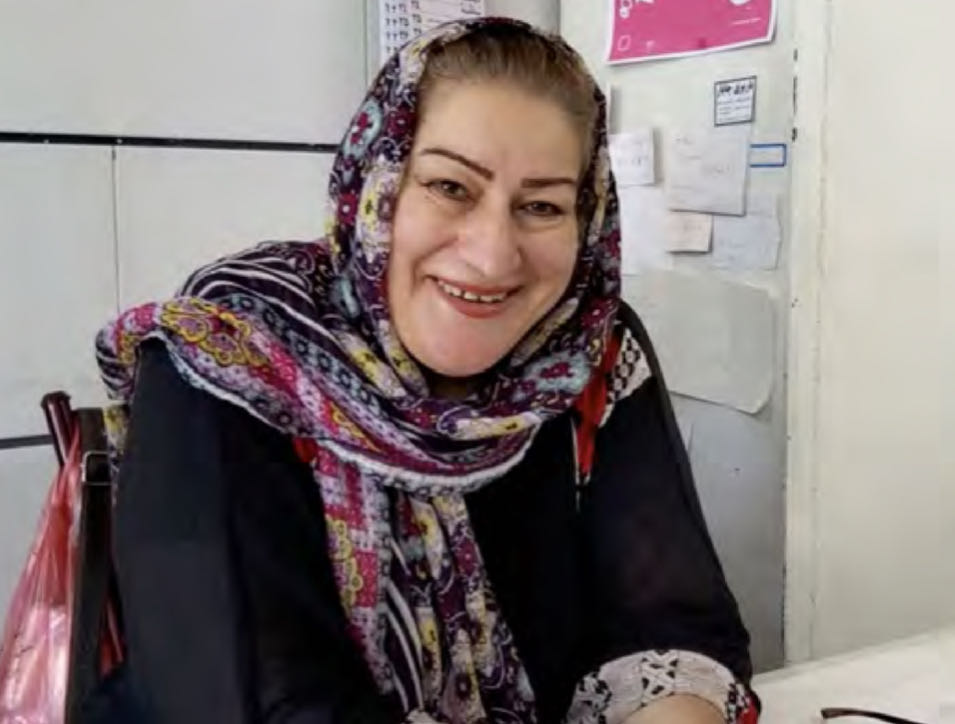
Shokufeh Tavakoli (Moharami’s wife), started working at the factory in 1992. She was the operations manager at Zimak, and was the technical back up to keep the machines running. She recalls their main customers were large companies, and banks who gave watches with their own logo to their employees. “The orders ranged from 3000 to 30,000 watches that kept us busy, increasing our staff to 35 people. The orders gradually dropped with illegal imports from China, causing the prices to drop, and Moharami’s persistance to manufacture watches in the factory instead of relabeling them from China for a cheaper price.”
“We coated watches with Gold, Nickel, and Silver with a 5 micron coating. In case of Gold we also coated them with a plastic coating called Satine. This coating pro- tected the Gold from harmful sweat, and helped it last more than 5 years.
I married Mr. Moharami after 8 years of working there. The working atmospher was so friendly, and it was such fun, and innovative environment. We developed strong family bonds, and still are in contact, and visit each other after the factory’s shot down.
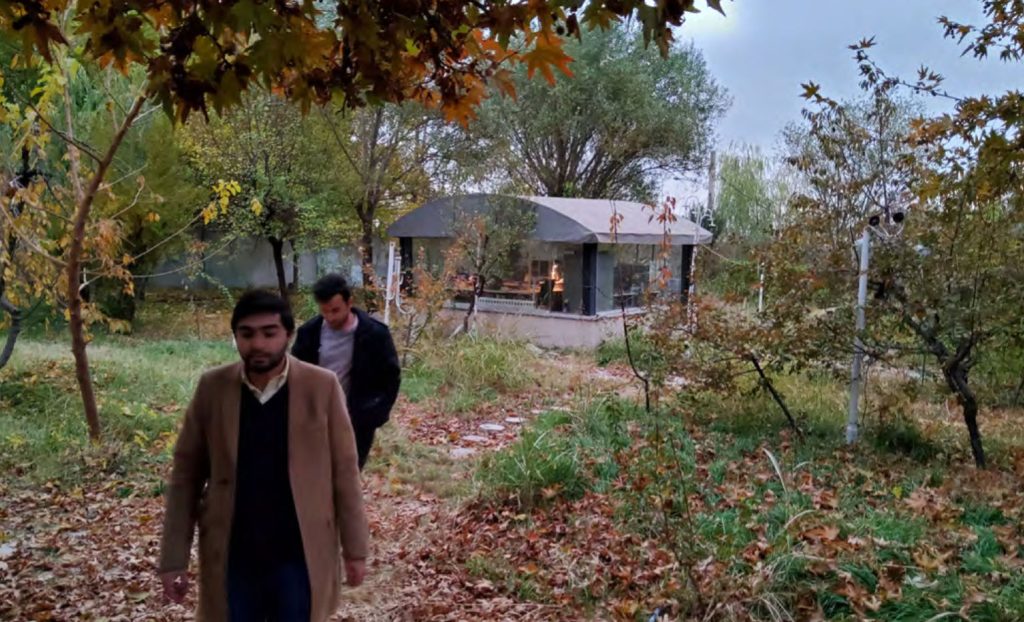
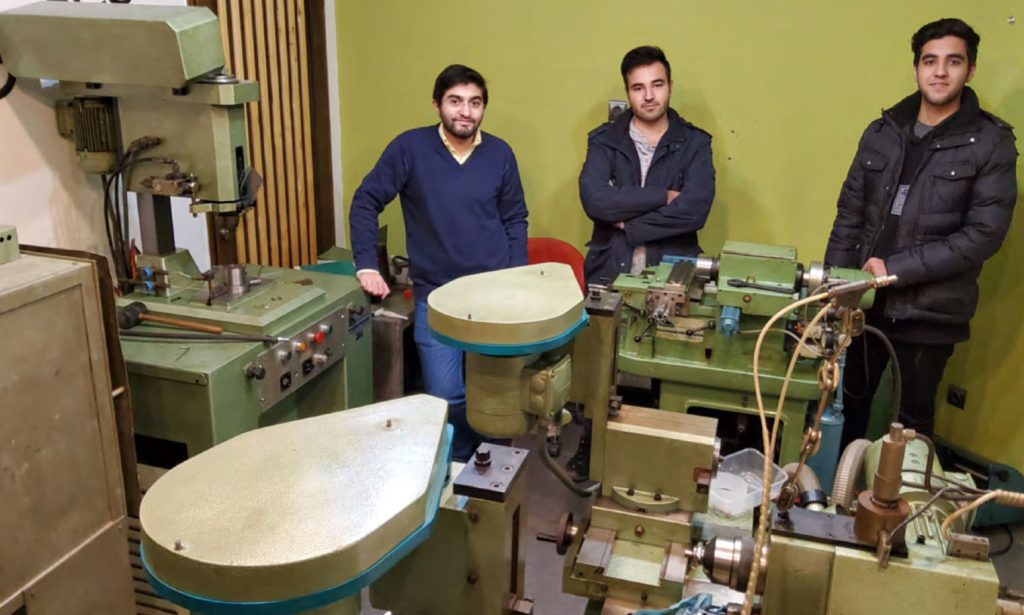
It’s a classic conclusion similar to George Daniel’s story in Britan, who donated his shop to his apprentice Roger Smith, to continue his work. Mr Moharami donated his entire factory to a group of students to carry the torch. Watchmaking is a long-term commitment, and requires a huge tooling capital. Giving it all away to an apprentice is like giving birth to a newly born child with all those toys around him or her to play with, and I’m not joking.
I’ve never heard of opticians giving away their factory to a group of students so they would contribute to the cause. Watchmakers do. Watchmaking is just a small part of micro-mechanics, but they have had the kind of teachers that the rest of us seem to have dropped out. If you just recall what happened during the 80’s, with the emergence of the Quartz watch, and how mechanical watches still managed to survive; The camera industry with all its glory, with its Hasselblad left on the moon, gave it all up as soon as digital age came along. Even Leica fans saw their great guru taking a nap.
We’d really miss out in life by lacking genuinely influential teachers. When a student keeps quoting: “My teacher said so and so…”, what he/she’s really saying is: “I didn’t really get it. My teacher knew, but he/she failed to teach me.” We don’t empower students to think for their own. Teaching how to think can begin with a humble padding on the student’s shoulder, and saying: “You really could understand this better than I do”. The student wouldn’t really learn if they feel you are lying to them.
The secret of giving, and receiving such teachings is so vulnerable in its nature. In “Les Misérables”, the candle sticks the priest gives to Jean Valjean is with the hopes that he will understand it. For that, he chooses the most vulnerable being he could find. “Charlie and the chocolate factory” touches on the same exact point. Only someone who doesn’t want to sell off his watchmaking factory understands what it’s for.
Not everyone who opens a genuine watch for the first time, would see the art form to touch their lives. Only someone like my friend Coung Dang, who spent the rest of his life learning how to gently touch it without harm, would become a watchmaker. The watch itself teaches those who know how to receive it. It’s like a mother putting her baby in a basket, and letting go of it in the Nile river, and you’d be the one receiving it. Watchmakers don’t find any place else they could feel that way.
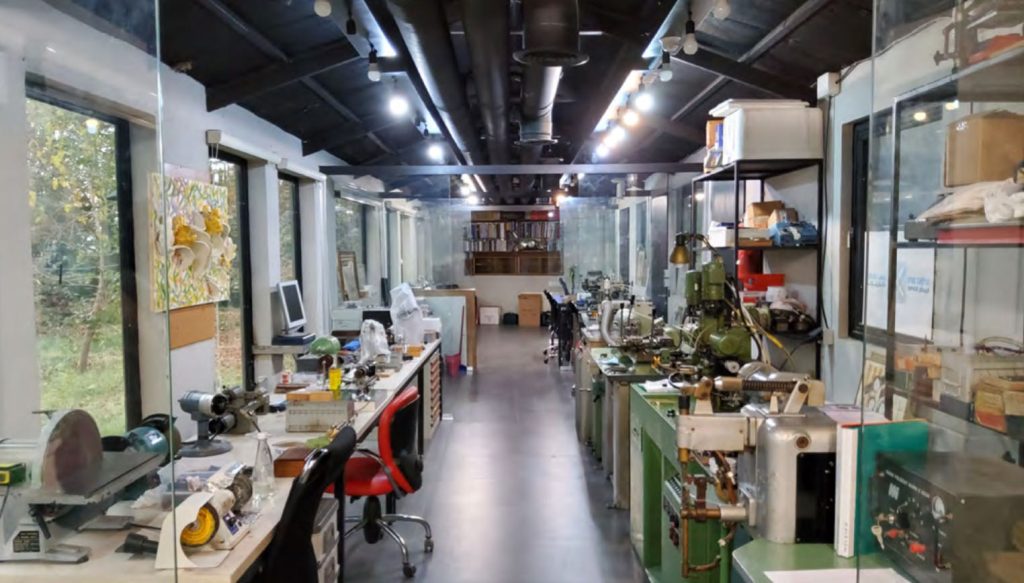

Zimak is now working hard to make high quality watches with a new team and it is ready to bring to you Elegant Wrist ware of Ancient Persia!
